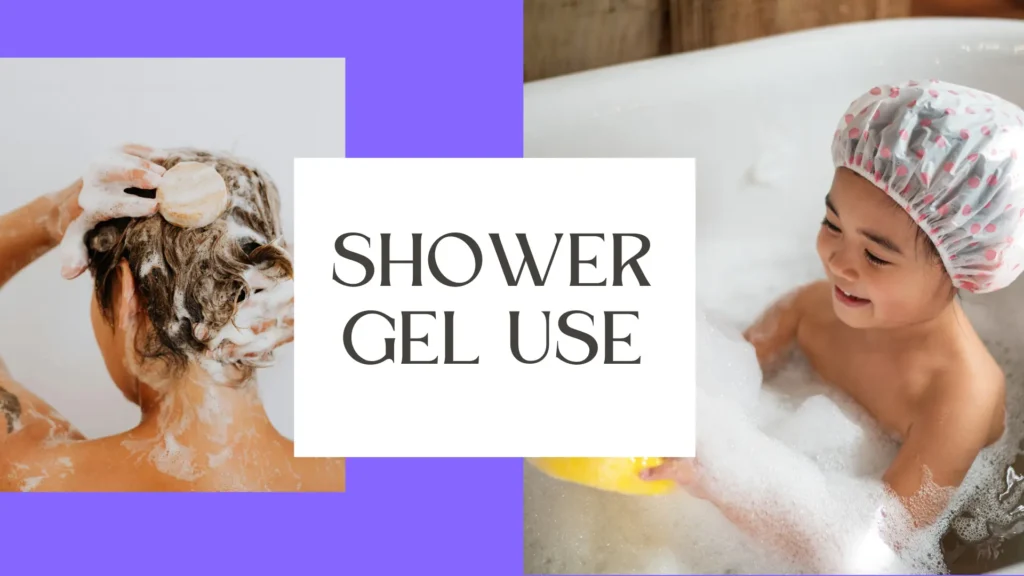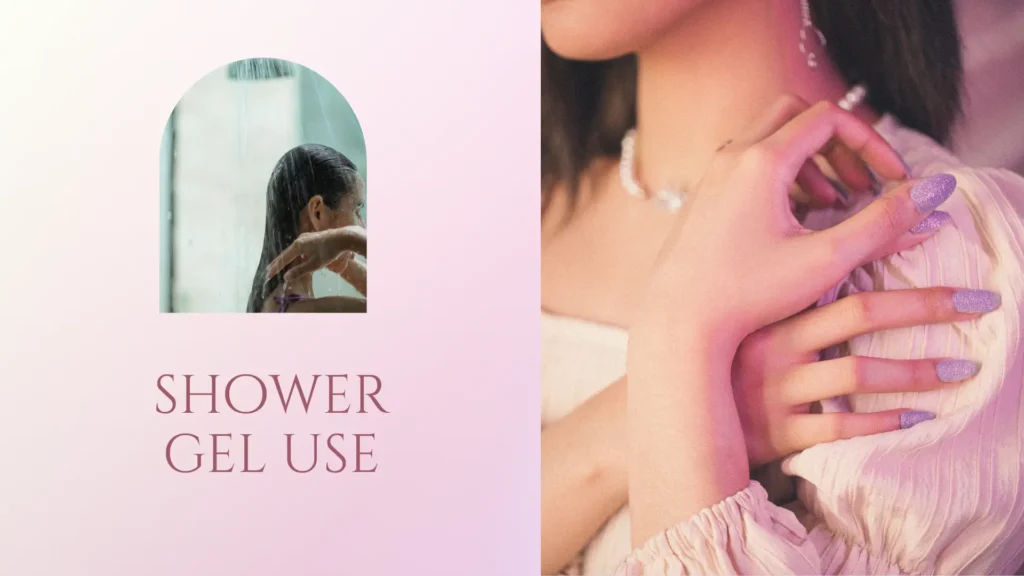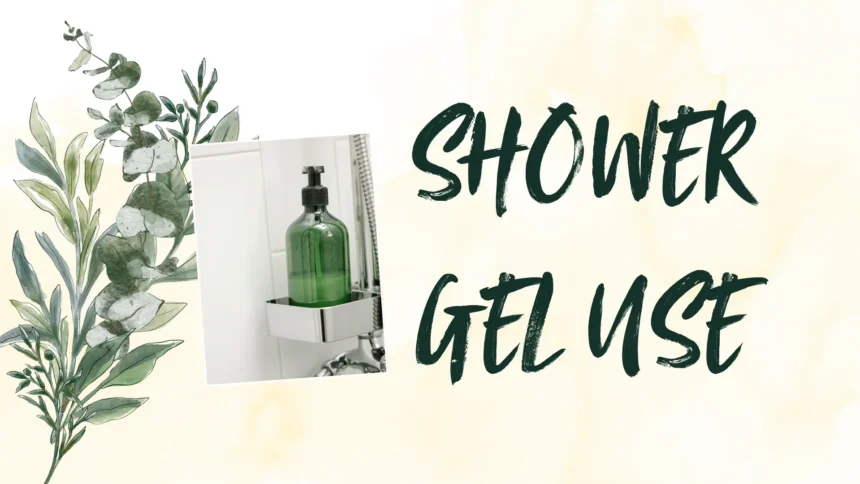Shower gel has become a feature in most modern bathrooms. And whether you are in need to feel refreshed after a long day, or in need of a relaxing shower to make your day better, use of shower gel in the bath or shower is an important hygiene practice. Shower gels are designed to be a piece of luxury than the traditional bar soap with various textures, fragrances, and enhanced skin benefits. But because there are so many products available, many people still question what the proper way to shower gel use it actually is.
This definitive guide will answer all your questions about shower gel usage for both its benefits, how to use it, the mistakes you could be making, whether it is right for your skin, and more.
What is a Shower Gel?
A shower gel is a liquid soap used for cleaning the body during showers. Its texture, scent, and inclusion of extra moisturizing or exfoliating factors set it apart from classic bar soaps. Shower gels usually consist of essential oils, conditioning benefits, natural extracts or other natural forms of moisturizers help make a product that is used in the shower for a good cleanse and feel great on the skin.
Shower gel is a liquid product used for cleansing the body during a shower, which can be used as either a body wash or for hair shampooing. Unlike typical bar soap (which relies on saponified oils for body cleansing), shower gels don’t have saponified ingredients in them (which are, much to my chagrin, naturally alkaline). Instead, shower gels typically contain synthetic detergents with plant as opposed to petroleum-sourced surfactants, which have a lower pH and are milder on the skin. Today’s shower gels feature moisturizing products, essential oils, and fragrances; they all work to cleanse away dirt, oil, and sweat as well as hydrate and renew the skin.

Key Features and Composition
- Includes water, surfactants such as sodium laureth sulfate or betaines, thickeners, preservatives, fragrance, and sometimes plant-based or essential oil components.
- Formulated to create a rich lather for a pampering bathing experience.
- Comes in a variety of scents, formulas, and benefits, for various skin types, such as moisturizing, antibacterial, and soothing needs.
Why Shower Gel Use is So Popular
- Handy to Use: Start with just a dab and work into a rich lather manually using a washcloth or sponge.
- Variety: Comes in hundreds of scents and formulas.
- Skin Pros: Most of them are infused with skin conditioning or exfoliating ingredients.
- Pamper power: Shower gels can feel spa-worthy.
There are many reasons why is a better option for the world.
Benefits of Shower Gel Use
Gentle Cleansing
Shower gels are also a good way to clean, without stripping too much. Unlike certain soaps, which may remove skin oils, shower gels typically contain moisturizers to leave skin feeling soft.
Hydration and Nourishment
Most shower gels contain lotions, aloe vera, or fruit extracts. And don’t worry: Those are still there to ensure moderate use doesn’t dry out your skin.
Aromatherapy and Relaxation
Scent is a major selling point for many shower gels. Both lavender and chamomile gels are favored for relaxation, and citrus and mint aromas are energizing.
Hygiene Benefits
Regular use of shower gel can clean the skin, impurities, sweat, bacteria can all be washed away, reducing odor and create a good feeling of clean and fresh.
Skin-Specific Formulas
Showers gels come in specialized formulas to suit any skin type, from sensitive to acne-prone to dry.
Types of Shower Gels
Hydrating Body Wash – with shea butter, coconut oil, and glycerin.
Scrubbing Shower Gel – microbeads, salt, or sugar crystals.
Antibacterial Shower Gel – for active/lifestyles and oily skin.
Aromatic Body Cleanser – potent scents to change your mood.
Natural/Organic Body Wash – no parabens or sulfates.
How to Use Shower Gel Correctly
The proper use of shower gel enhances its properties and avoids waste. Here’s a step-by-step approach:
- Get Your Skin Wet – Make sure to get your entire body wet before applying the shower gel.
- Offer the Right Quantity – Normally, the size of a coin is all that is required.
- Apply with a Loofah/Sponge -To exfoliate gently and to lather well.
- Circular Massage-For better cleaning and relexing muscles.
- Thorough Rinse – Residue causes irritation.
- Pat Dry and Moisturize – It is always essential to replenish your skin’s moisture after your daily shower.
Common Mistakes in Shower Gel Use
- Putting On Too Much: Using more than needed can be wasteful a drain on product and have a drying effect on skin.
- “Forgetting” Moisturizer Afterward: Shower gels are not an alternative to body lotions all together.
- Not Suitable For Skin Type: If you have a sensitive skin do no go with harsh chemical gels.
- On Skin Useng: Applying without loofah, it lather well, but it may limit cleansing.
Different Types of Skin and Using
For Dry Skin
Choose creamy shower gels that have ingredients such as hyaluronic acid, glycerin or coconut oil.
For Oily/Acne-Prone Skin
Opt for antibacterial or tea tree shower gels to balance your oil production.
For Sensitive Skin
Opt for hypoallergenic and fragrance-free formulas that won’t irritate the skin.
For Normal Skin
You can play around with the flavors and consistency as per your choice.
Shower Gel Use vs. Bar Soap
- Bar Soap: Generally cheaper than alternatives, but also harder on the skin.
- Gel Rinse: More of a treat, cleaner(r). More optimised for him/her skin.
Most dermatologists will tell you, using shower gel is gentler; more appropriate for modern skincare routines.
Seasonal Shower Gel Use
Summer:
Gels that are cooling with menthol or citrus extracts.
Monsoon:
Anti bacterial properties to fight skin infections.
Winter:
Additional moisturizing gels formulated with almond milk or shea butter.
Eco-Friendly and Sustainable Options
Many companies now offer biodegradable, refillable or packaging-free shower gels thanks to a heightened awareness of environmental concerns. Being able to use a shower gel for a sustainable length of time reduces the amount of plastic over the time without sacrificing the skin.
How to Choose the Best Eco-Friendly Shower Gels?
- Relies on plant-based ingredients such as aloe vera, coconut oil and essential oils, not harsh chemicals.
- Doesn’t contain sulfates, parabens, artificial fragrance, microbeads and other pollutants that can damage water systems and skin.
- Uses biodegradable and/or sustainable packaging, Contains refillable containers, glass containers, or compostable packaging.
- Frequently has certifications guaranteeing that products are cruelty-free, vegan, and organic, in line with ethical sourcing and production.
Environmental Benefits
- This actually reduces plastic waste because we use packaging that naturally starts breaking down or is refillable/reusable.
- Reduces environmental pollution with biodegradable composition and without microplastics or harmful substances.
- Many eco-friendly companies promise to take additional measures to protect the environment, such as operating as carbon-neutral companies, or backing environmental causes like reforestation and conservation.
Common Ingredients in Sustainable Shower Gels
- Aloe vera and coconut oil for hydrating and supporting skin barrier.
- Shea butter for additional skin nourishment and moisturization.
- Natural fragrance via essential oils (lavender, citrus, etc).
- Natural surfactants (e.g., decyl or caprylyl glucoside) for mild but efficient cleansing with no harm to the environment.

Shower Gel Use Myths And Facts
Myth 1: Shower gels are for women only.
→ Myth: They’re unisex but formulated for everyone.
Myth 2: You can’t moisturize with a shower gel.
→ Fact: Most current formulas are incredibly hydrating to the skin.
Myth 3: You can substitute shampoo with shower gel.
→ Fact: Although it won’t hurt to use it occasionally, hair demands certain shampoos.
Choosing the Right Shower Gel
- When selecting, consider:
- Skin type and sensitivity
- Fragrance preference
- Ingredients (chemical-free vs. standard)
- Price and availability
Trends which are likely to affect the use of Shower Gel in the future
- Waterless shower gels for travelers.
- Refill stations at supermarkets.
- Personalized combinations according to skin analysis tests.
Conclusion
Using a shower gel is not only a way of cleaning your body, but it also means luxury, skin care and personal well-being. Shower gels offer several benefits that bar soaps sometimes do not, from hydration to aromatherapy. Whether you have dry, oily, or sensitive skin, there is one for you. With the right pick and technique, you can turn your everyday shower into a restorative ritual.
Frequently Asked Questions (FAQs)
Yes, you can use shower gel daily as long as the it’s friendly for your skin.
The coin size quantity is enough for full body wash.
Yes – go gel, fragrance free, dermatologist recommended.
Not recommended for regular use as shampoos are pH-balanced for hair.
No, I don’t think so, on the contrary, shower gels are usually hygienically produced because they are poured out without touching it with your hands.







